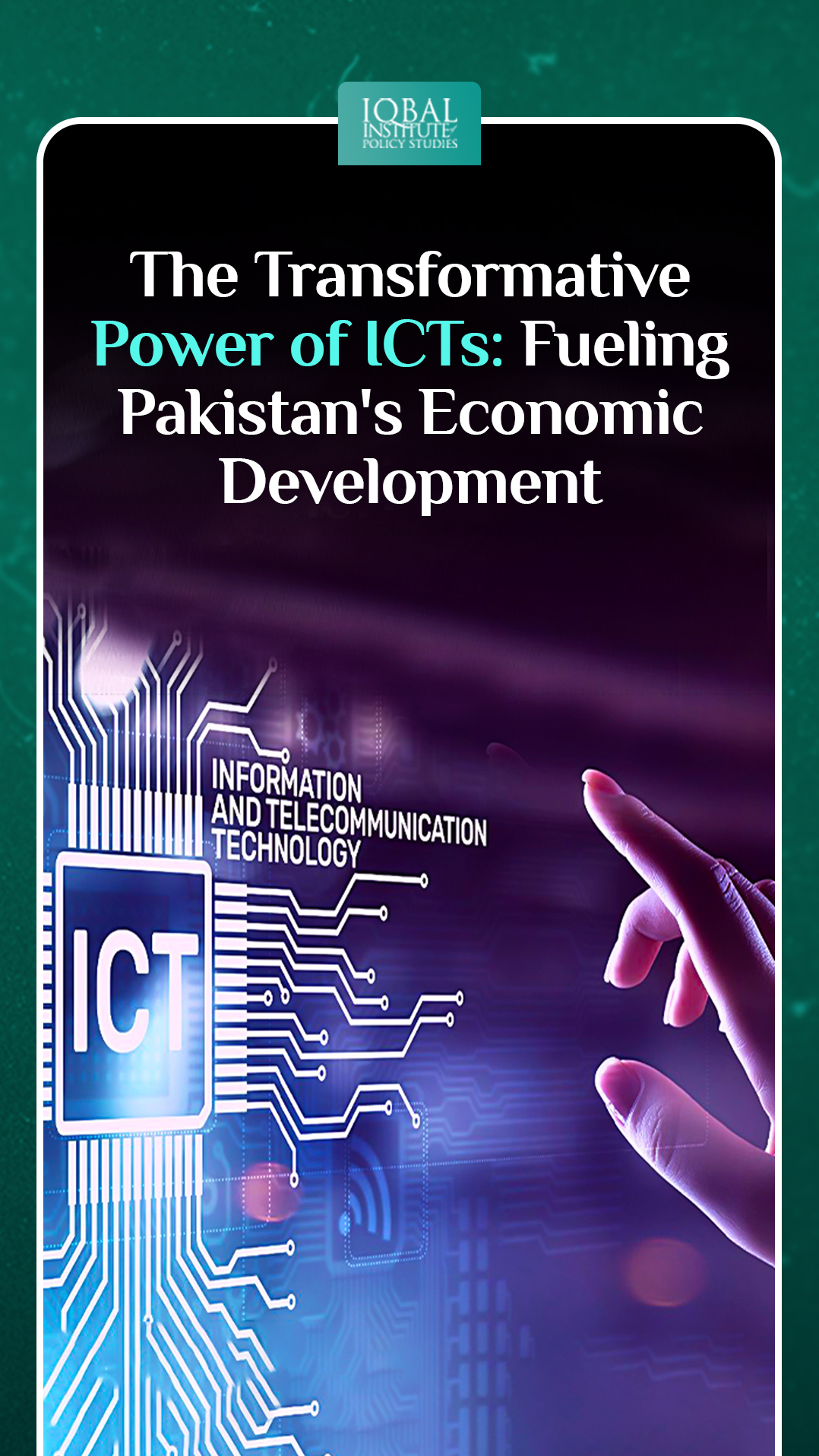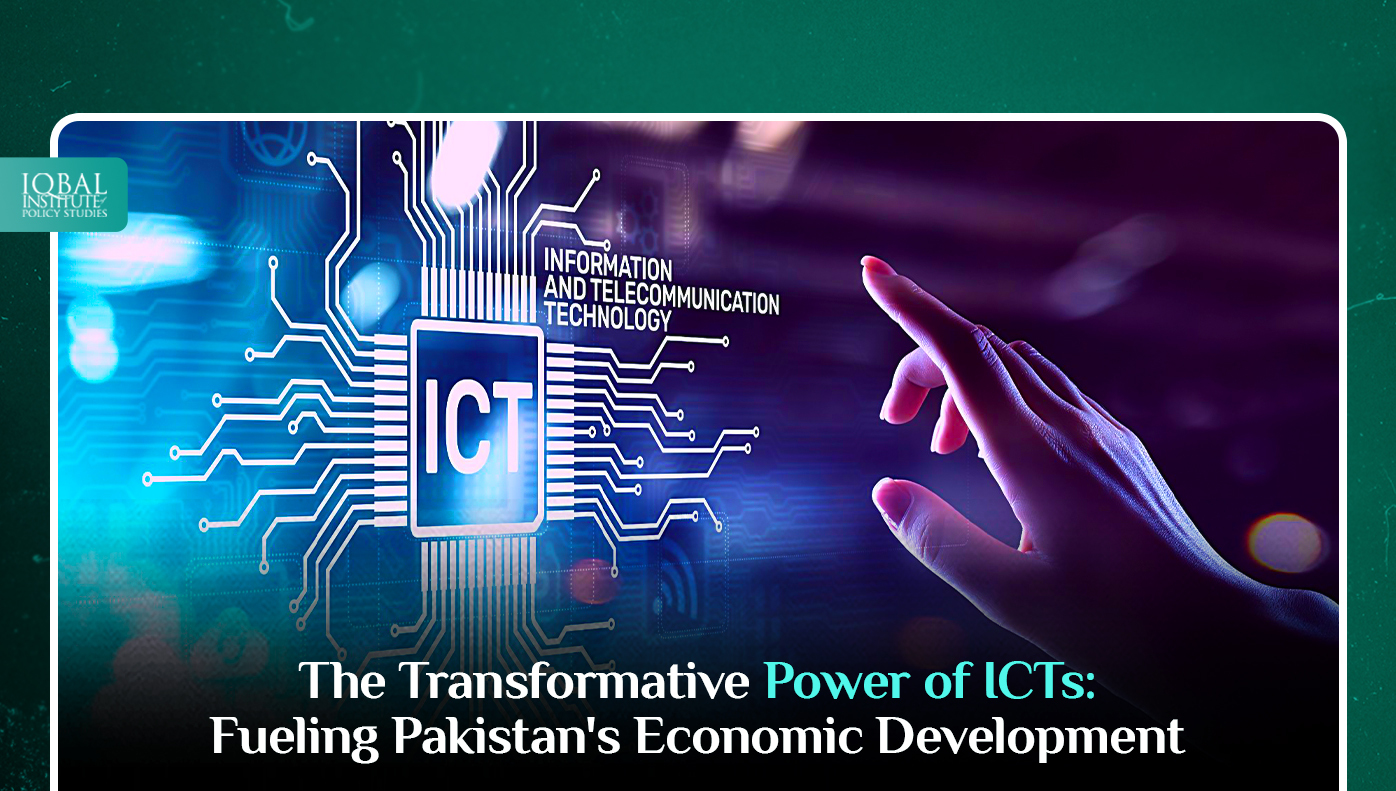In an era where the world is being reshaped by technology, Pakistan stands at the cusp of a digital revolution that promises to redefine its economic landscape. Information and Communication Technologies (ICTs) have emerged as the linchpin of this transformation, wielding the potential to catapult Pakistan into a new era of economic development and prosperity. This comprehensive blog post aims to unravel the multifaceted impact of ICT advancements on Pakistan’s economy, elucidating how these technologies are reshaping industries, fostering innovation, enhancing connectivity, and, in the process, positioning Pakistan as a formidable player in the global economic arena.
The Evolution of ICTs in Pakistan
The evolution of Information and Communication Technologies (ICTs) in Pakistan has been nothing short of transformative. Beginning in the early 2000s, Pakistan embarked on a journey that would revolutionize its telecommunications sector. The liberalization of the telecom industry paved the way for unprecedented growth in mobile phone penetration, democratizing access to communication tools for millions of Pakistanis. This pivotal moment not only connected people but also laid the groundwork for a broader digital revolution. As mobile phone usage soared, it set the stage for subsequent advancements in ICT infrastructure and services. Today, Pakistan boasts a robust ICT ecosystem characterized by widespread mobile connectivity, a burgeoning start-up culture, and a growing digital economy. This evolution has not only reshaped industries and services but also positioned Pakistan as a player on the global stage, poised to leverage ICTs as a catalyst for sustainable economic development and growth.
Reshaping Industries and Services
Telecommunications
Pakistan has witnessed an extraordinary increase in mobile phone penetration. With millions gaining access to affordable communication tools, this accessibility has not only transformed how people connect but has also opened up avenues for mobile banking, digital payments, and e-commerce, thereby significantly enhancing financial inclusion.
E-commerce
The rise of digital marketplaces and online payment systems has fueled the exponential growth of e-commerce in Pakistan. Platforms like Daraz, Foodpanda, and Alibaba’s investment in Daraz have made it convenient for consumers to shop and dine online, propelling growth in the retail and food industries.
Freelancing and Outsourcing
Pakistan has emerged as a global player in the field of freelancing and outsourcing services. Talented individuals are offering their skills in software development, content writing, graphic design, and more to clients worldwide, effectively participating in the global gig economy.
Fostering Innovation and Entrepreneurship
Start-up Ecosystem
The ICT sector has given rise to a burgeoning start-up ecosystem in Pakistan. Incubators, accelerators, and venture capital firms are actively supporting innovative entrepreneurs, fostering creativity, and attracting both domestic and international investments.
Digital Education
Online learning platforms have gained immense prominence, especially during the COVID-19 pandemic. EdTech companies like Coursera, edX, and local platforms are providing accessible and affordable education options, narrowing the digital divide and increasing literacy rates across the country.
Enhancing Connectivity and Infrastructure
Fiber-Optic Networks
Significant investments in fiber-optic networks are vastly improving internet connectivity and speeds across Pakistan. This robust infrastructure is pivotal for businesses, educational institutions, and telemedicine services.
Smart Cities
Pakistan is embracing ICTs in the development of smart cities. Technologies like the Internet of Things (IoT) are being used for efficient urban planning, traffic management, waste disposal, and resource allocation, leading to more sustainable and livable urban environments.
Empowering Rural Communities
ICTs are not confined to urban centers; they are bridging the rural-urban digital divide in Pakistan. Mobile-based agriculture apps provide farmers with vital information on crop management, weather forecasts, and market prices. These technologies empower rural communities by increasing agricultural productivity and income.
Conclusion
In conclusion, ICTs have become the bedrock upon which Pakistan’s economic development is being reimagined. They are revolutionizing industries, fostering innovation, and enhancing connectivity at an unprecedented pace. As Pakistan continues to harness the potential of ICTs, it stands on the precipice of a digital renaissance that promises accelerated economic growth, job creation, and an improved quality of life for its citizens.
With sustained investments in infrastructure, policy support, and a steadfast commitment to digital inclusion, Pakistan is poised to harness the full potential of ICTs and embark on a journey toward a future characterized by economic prosperity and global competitiveness. The transformative power of technology is propelling Pakistan into a new era, where economic development knows no bounds, and the nation emerges as a frontrunner in the global digital economy. Pakistan’s destiny is intertwined with the digital age, and its embrace of ICTs is the key to unlocking a brighter and more prosperous future for all.
This article is written by Radma Nouman. Radma is a research analyst at the Iqbal Institute of Policy Studies (IIPS).



Leave a Reply